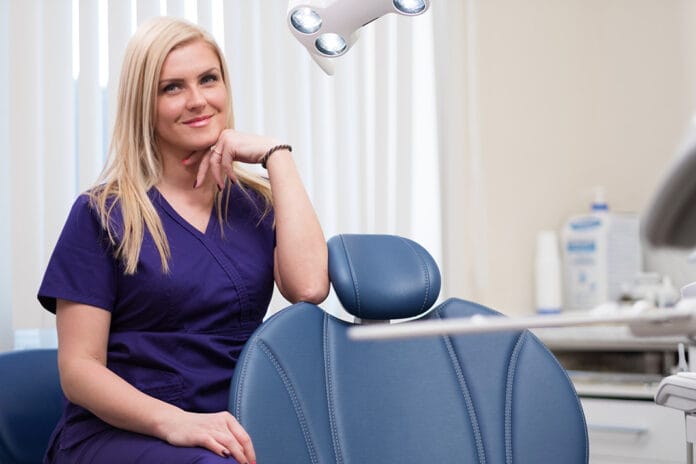The International Federation of Dental Hygienists, or IFDH, has always encouraged a high level of autonomy in dental hygienists. Autonomy refers to a person’s ability and responsibility to make important decisions without external control or, in our line of work, making decisions about a patient’s care without a dentist approving or standing over our shoulders.
Mostly, in America and Canada, as described by researchers in Dental Hygienist Job Autonomy Depends On The Period Of Dental Hygiene Education, dental hygiene specialists are given a certain amount of freedom and control over their jobs and their day.
For example, we don’t need a dentist to take radiographs. We can do that ourselves. We don’t need a dentist to scale someone’s teeth. We can do that as well. Many of us also do not need help identifying problem areas that need to be addressed. We even have the ability to address some problems that dentists currently do that we are not necessarily supposed to do.
Researchers have begun asking themselves if dental hygienists, in particular, could provide certain services without requiring the presence or approval of a dentist? What is it that gives hygienists like us the confidence and freedom to express our autonomy in the office? What does this mean for the future of our careers, if anything?
Autonomy and Dental Hygienists
The IFDH has updated its policies to state that dental hygienists can, and should, be able to do their work independently as oral healthcare providers. The macro definition of our job is universal. In every country, with available information, a hygienist’s job is to provide preventative oral care to our patients while educating them about the correct practices of oral hygiene.
These new policies give dentists the ability to add a few more responsibilities to our job descriptions, freeing their time for restorative treatment, emergency services, and detailed cosmetic enhancements.
Our group, as a whole, believes that our job autonomy has a direct influence over how positive we are about our jobs and how effective we are at teaching our patients how to care for themselves. Job autonomy comes in three interlaced forms:
- Autonomy in decision-making refers to the ability to make independent decisions related to a patient’s care and the freedom to make judgments about a diagnosis.
- Autonomy in work style gives us the independence to choose the way we complete a task.
- Autonomy in scheduling allows us power over the scheduling of our patients and our general work schedule.
When we are allowed a certain level of autonomy with our patients, their care increases in value, and dental costs can be lowered. We are more accessible to our patients, and their trust in us increases exponentially.
These policies allow us to grow with our jobs, increasing our firsthand knowledge while increasing our job satisfaction. Competent hygienists who display an inherent ability to solve difficult or complex problems on their own while keeping the patients safe should be given more independence and autonomy throughout their day and their career.
Providing oral hygiene care in areas where dental care is inaccessible or difficult to find can be done by such competent hygienists.
Free The Hygienists!
Hygienists in every country studied reported differing levels of autonomy. Most of these levels correspond with their level of education, experience, and the length of time the country has been educating its hygienists. The longer a country has had actual dental hygiene education, the more autonomy we have.
For example, America has been educating hygienists for over 40 years, and the knowledge we have gained is similar to that of any other hygienist in the nation. Standardized testing in Canada has increased the knowledge base of their hygienists. Both countries have strict education policies in place to guide us into the important responsibilities of our job.
Hygienists in other countries, not individually named, may have been hired to do their jobs with little to no experience and, therefore, need direct supervision. Countries that have been educating hygienists for less than 40 years usually have a lower level of autonomy, and there usually isn’t universal or standard education procedures that truly teach a person how to do the job.
The researchers have come to the conclusion that hygienists in first-world countries, as in America and Canada, have such a solid educational base that, with experience and continued trust and instruction from their dentist, allows us to grow and increase our responsibilities, proving our ability to work without over-the-shoulder supervision.
Standardizing dental hygiene education all over the world will not only increase our autonomy but will give us direct and necessary access to areas deficient in dental care. Our attitudes and willingness to learn can increase the quality of life for our patients and ourselves. Freedom is essential for growth, and continuing education will ensure a continuing level of autonomy in our jobs.
These researchers believe that we are fully capable of successfully completing many jobs that our dentists currently do (i.e., diagnosing periodontal disease and determining the need for radiographs). More autonomy for us means that the dentist has more time with serious patients and doesn’t have to rush. This puts them in a better mood and increases the quality of their workday.
Isn’t this what we really want?











